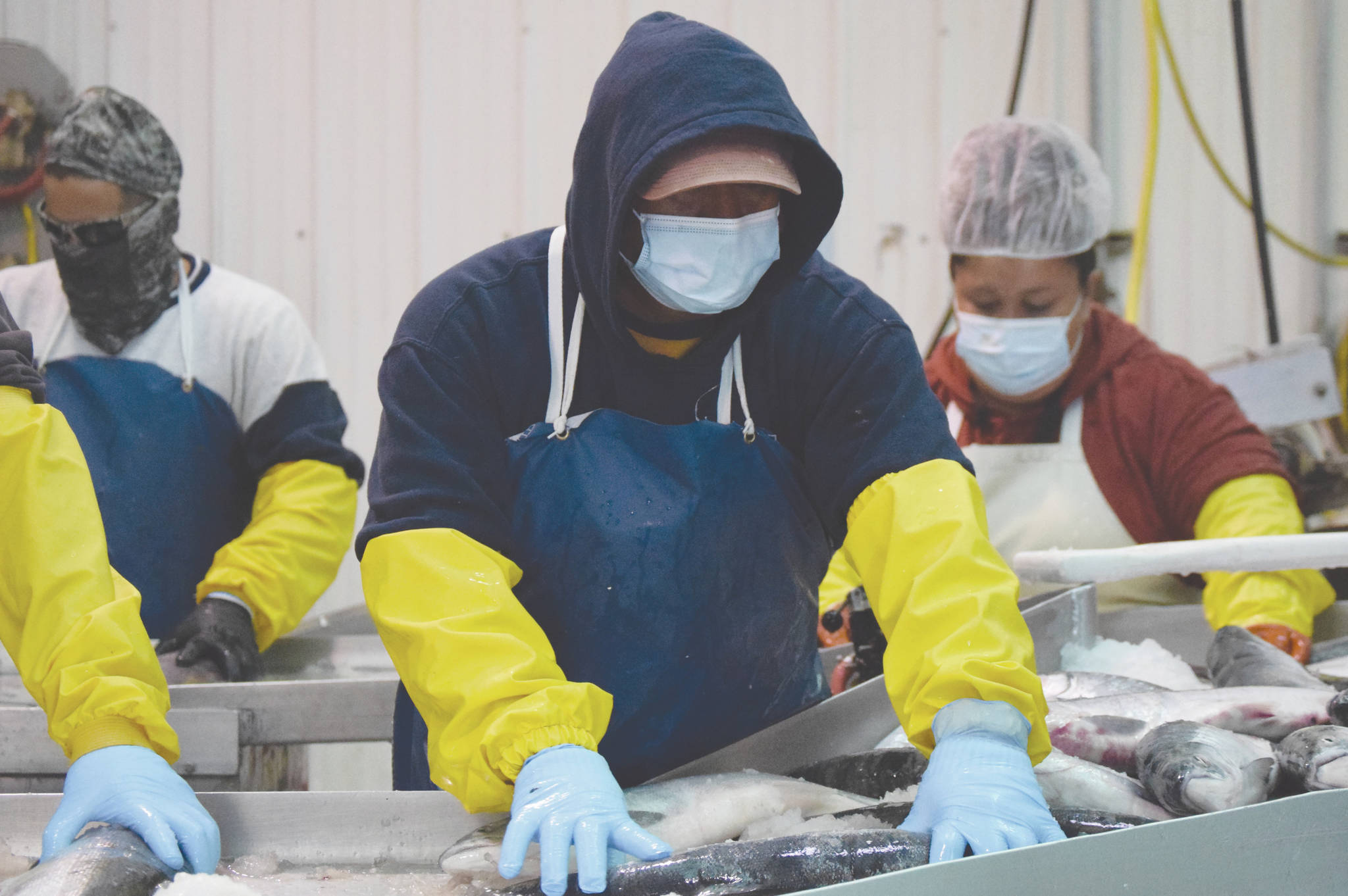Local governments are still trying to stop the closure of federal Cook Inlet waters to commercial salmon fishing.
Those waters, called the Exclusive Economic Zone (EEZ), run from south of Kalgin Island to about Anchor Point, and are a key fishing ground for many of Cook Inlet’s drift net fleet. The North Pacific Fishery Management Council (NPFMC) voted last December to recommend the closure as a “management” plan.
That option, called “Alternative Four” has drawn criticism from several groups for being added for consideration just months before the council voted and because of the economic harm they say it would cause.
Both the Kenai Peninsula Borough Assembly and Kenai City Council passed resolutions last week that ask U.S. Secretary of Commerce Gina Riamondo, who was confirmed by the U.S. Senate also last week, to veto the management council’s decision.
In introducing the legislation to the assembly, assembly member Willy Dunne said he does not want the issue to be forgotten.
“What I’m trying to do with this resolution is keep this issue alive and in the minds of people that we still have a ways to go,” Dunne said.
Kenai Mayor Brian Gabriel, who is also a commercial fisher, said during the Kenai City Council’s Wednesday meeting that fish processors are too often left out of the conversation about what impact the closure of the EEZ will have on the community. Those processors rely on fish caught in the EEZ as a source of income, Gabriel said.
“We are down to very few processors that are in Cook Inlet and they’re a business like anybody else,” Gabriel said. “It’s not charity work for them. If they’re not going to make any money … then they’re going to leave [and] once we lose those processors it’s going to be very problematic to bring them back.”
Alaska Salmon Alliance’s Robert Ruffner said Friday that Kenai processors are “quite concerned” about the closure, which he said would take effect in the 2022 season. That would be the first time the waters would be off-limits since before statehood.
Ruffner said that while processors were given the same opportunity to engage with the process as members of the public were, they had “zero communication” from the state indicating that they would move toward closing the EEZ.
“They caught and caught the processors completely off guard and by complete surprise, because processors generally try to stay out of the “fish wars” and the allocation component because they buy fish from all users,” Ruffner said.
The peninsula’s processing industry, Ruffner said, has evolved to accommodate a certain length of a season, usually around 10 weeks, and that EEZ waters are particularly important during the first two or three weeks when early fish come in. Those weeks, Ruffner said, are “critical” in determining what processors can afford in terms of hiring staff, keeping equipment up and running and continuing to process fish.
“Strictly from the economic side, it’s potentially very devastating to take, take that component of the season away from, from the processing industry here on the peninsula,” Ruffner said.
Processors are also worried about what the closure will mean for the overall management of the fishery. Losing the ability to harvest fish at the beginning of the season, Ruffner said, could become problematic because shorter seasons mean having to reduce the workforce due to costs.
Fisheries managers have said that those processors will be able to harvest fish at an increased amount later in the season, but Ruffner is concerned that trying to harvest the same amount of fish in a condensed season “simply just won’t work.”
“There’s a limited amount of space that you can store fish [and] there’s a limited amount of time that they can sit on ice,” Ruffner said. “All those things factored together really are causing a lot of angst for the processing companies that are operating.”
The idea of processing the same amount of fish in a compressed season becomes more challenging, Ruffner said, when one considers that 25% of all fish harvested have traditionally been harvested in the EEZ.
Ruffner said that, ultimately, processors worry about what the closure would mean for their long-term futures. The industry, he said, is one that has good years and bad years and depends on the good ones to offset the bad.
“If you’re taking away the potential to have a good year by not being able to harvest the front end of a run, that’s going to take its toll over time,” Ruffner said. “Even if everything goes as well as it possibly could this year, there’s going to have to be some changes and some reduction in workforce and a lesser amount of economic stimulus coming from an industry that’s been here for a very long time.”
The closure of the EEZ is not quite a done deal yet, though. Ruffner explained that the NPFMC serves in an advisory capacity to the National Marine Fisheries Service, which then advises the U.S. Secretary of Commerce. It’s possible for the Secretary of Commerce to intervene and make a different determination, as could courts if the closure is challenged legally.
“There’s a number of things that are still in play, both [at] the federal administrative level [and] at the judicial level,” Ruffner said.
That’s where local government bodies are hoping their respective resolutions may play a role.
“When it comes down to the total number of fish that are available for processing, this hurts,” Ruffner said. “[Through resolutions], they’re rapidly trying to engage in the process and understand what they can do to come up with a more favorable outcome.”
Both Kenai and the assembly’s resolutions passed unanimously.
Reach reporter Ashlyn O’Hara at ashlyn.ohara@peninsulaclarion.com.

